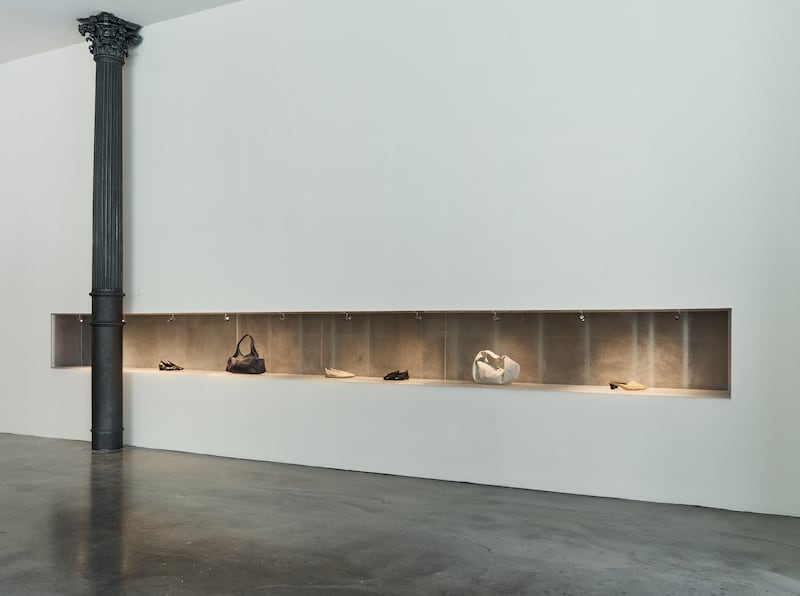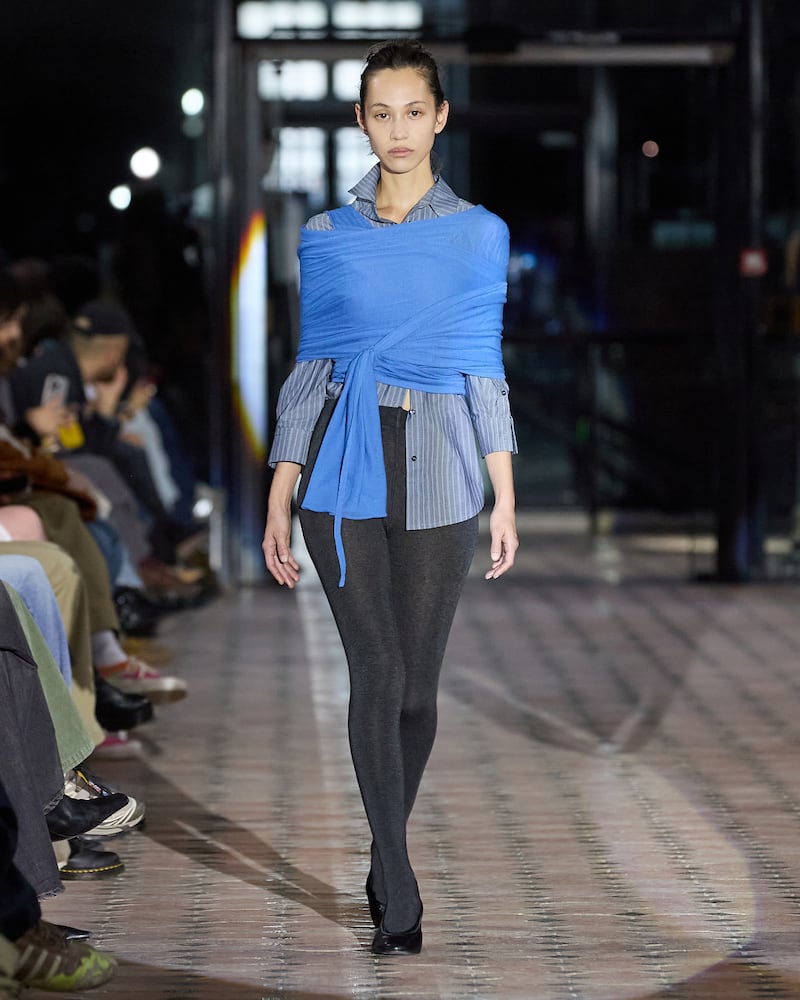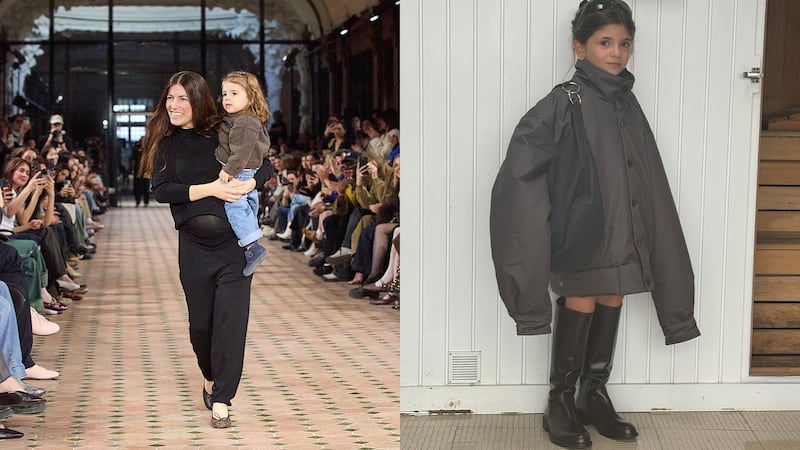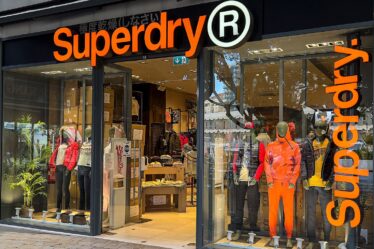It was a Monday afternoon when Paloma Lanna, founder of Paloma Wool, picked up the phone from her home in Barcelona. Lanna was six-and-a-half months pregnant, had just landed from a transatlantic flight and was on the brink of opening her brand’s first permanent retail locations in two major cities: New York and Barcelona.
“I don’t have the freshest head,” she said. Despite her whirlwind schedule, Lanna’s focus remains sharp as she speaks with calm confidence about this milestone. “It is a huge step for me to open two physical stores. It’s one of the most important things that has happened at Paloma Wool since it was born.”
Since 2014, Paloma Wool has built a dedicated following for its aesthetic, which blends playful, breezy textures and colours with artfully minimalist silhouettes. Its cupro sets in earthy tones, sheer knit tops, oversized belts and trousers overlaid with skirts come together to create a relaxed, yet daring vibe. Think SoHo cool meets the Barcelona breeze.
With an average item price around $200, the brand’s prices are closer to those of fast-growing premium DTC brands like Sézane and Polène than the typical designer label showing at Paris Fashion Week — like Paloma Wool has for the past four seasons.
Photographers, artists, models and chefs are among the many creatives who tag themselves wearing the brand, whose unique identity and efforts to build a community on Instagram have driven buzz and sales. The brand, which has almost 800,000 followers on the platform, grew sales 42 percent to €17 million ($18.5 million) last year. The brand projects it will likely surpass €20 million in revenue this year, with potential to reach up to €23 million “with strong execution and favourable market conditions,” said Pau Feu, Lanna’s husband and business partner.
But Paloma Wool doesn’t see itself as a social media brand. “Instagram was our speaker to the world, but now we’re focussed on breaking online barriers,” she said. “That’s why these physical spaces are so important — they allow us to exist beyond the digital screen.”
From Pop-Ups to Flagships
Paloma Wool’s expansion into permanent retail follows the success of its global pop-up strategy, which the brand called its “World Tour.” Last year, Paloma Wool generated 25 percent of sales from pop-ups. The brand’s temporary stores have created cult-like demand, with lines forming outside locations in cities such as Seoul, Paris and Los Angeles. “These spaces were never just about selling clothes,” said Pol Conill, from the brand’s image team. “They allowed us to create deeper connections with our community, offering an immersive way to experience Paloma Wool beyond the digital realm.”
New York, where Paloma Wool has held pop-ups since 2019, emerged as a natural location for what turned out to be its first permanent retail store.
“Each season, we kept returning to the city, and the demand grew stronger,” said Lanna. “It’s our home away from home.” The store is a 3,000 square feet space located at 425 Broome Street, in the heart of SoHo. The New York store, which opened on Friday, was ready faster than expected, with stateside renovations racing ahead of the Barcelona flagship, whose opening has been pushed back a few weeks.

The Barcelona location, in the busy Eixample district, is a more complex project. Over 8,500 square feet, the space will not only house the flagship, but also Paloma Wool’s headquarters, design studio and an adjacent bookstore. “Every time I travel, I like to visit bookstores,” said Lanna. “It made sense to dedicate a small space to books focussed on fashion.”
As the project scope goes beyond a traditional store, its opening has taken longer than anticipated — but having a flagship in Lanna’s hometown is a must. “Every customer who travels to Barcelona asks where our store is,” said Lanna. “Now, we finally have a home base where people can truly experience Paloma Wool in a physical setting.”
Spanish Sensibility Goes Worldwide
Paloma Wool’s business is largely direct-to-consumer, with 80 percent of sales coming from its online store and pop-ups. Wholesale, which accounts for 20 percent, is viewed more as a brand positioning tool rather than a growth driver. Select partnerships with retailers like Ssense primarily serve to enhance the brand’s presence.
“We want to control where we are physically present,” explained Feu. “The decision to open permanent stores was driven by the need to have a daily space where we can communicate with our community beyond the digital.” The shift to a more permanent retail model is a strategic step that balances the brand’s online message with an in-person experience, fostering loyalty and deepening customer engagement.
“It’s high quality stuff that you know will last you a long time, so even though the prices are up there, I personally see it as an investment. The minimalist, unique designs are also a selling point for me, providing versatility, whether you want to dress up or be casual,” said Simonas Jucys, a Paloma Wool enthusiast from Latvia.
The brand projects that physical retail — including the new flagship and continued pop-ups — could account for €8 million or around 35 percent of total revenue this year. The move also readies the company for further openings in key cities, although Lanna remains cautious about growing too quickly.
In order, the brand’s biggest markets are the US, the UK, Europe, South Korea/Japan and Australia. “The brand was born digital, so our reach has always been international,” said Lanna. Japanese-American model and actress Kiko Mizuhara and Canadian photographer and model Petra Collins are among the artists who have collaborated with the brand.

Spain, despite being the brand’s home country accounted for only 7.5 percent of revenue in 2024. The reluctance of Spanish consumers to invest in independent fashion, in contrast to the country’s entrenched fast fashion industry led by homegrown giant Inditex, has contributed to the brand’s international leanings, aided by its digital birth story.
“Spain has a deep-rooted fast-fashion culture, and people aren’t used to spending over €100 on a top or skirt. But we’ve always been transparent about producing in limited quantities and locally, which inevitably makes our product more expensive. That said, we also have a solid presence in Spain, and it means a lot to feel supported here too,” said Lanna.
“On a personal level, I feel very proud of where I come from. My roots are in Spain, Barcelona, and even though the project has an international presence, that identity is present in everything we do,” Lanna expanded.
Most of Paloma Wool’s products are manufactured on the Iberian Peninsula, the brand said.
A Personal Approach to Growth
For Paloma Lanna — whose last name loosely translates into “wool” — her brand has always been an extension of her personal journey. “I started this project at 23, and it has evolved with me,” she said. As the brand matures, so does its aesthetic: What once leaned toward vibrant, playful prints has evolved into a more refined and understated colour palette, reflecting Lanna’s own shifts in taste and lifestyle. Her Autumn/Winter 2025 collection reincorporates pastels, as well as a focus on capes and shawls, reflecting Lanna’s cravings for cozy coverage, designed during early stages of her pregnancy.
“My inspiration when designing comes mostly from how I feel and what I’d like to wear myself. How I dress is somewhere between feminine and masculine, playful yet quiet.”
Paloma Wool showed menswear for the first time at its Spring/Summer 2024 runway, though some men’s and unisex pieces had been included in previous collections. It’s been “harder to figure out who the Paloma Wool Man is,” Lanna admits. For now, the brand’s male customers are generally “super open-minded, sensitive and have difficulty finding clothes that appreciate effortlessness in style.”

Children, including her daughter Salomé and niece Uma and have been featured in the brand imagery, though Lanna does not see the brand expanding into any new categories like children’s wear for now. “It’s too much,” she said. “I want to focus on what I’m good at.”
Paloma Wool certainly excels at staying close to its community. When customers tag themselves wearing the brand, it’s always been savvy about reciprocating, commenting and reposting its wearers’ content. Lanna looks forward to taking that approach offline.
“I’ll be at the Barcelona location every day, learning from our customers, understanding what works,” she said. “It’s a big step, but one that feels right.”
Content shared from www.businessoffashion.com.


